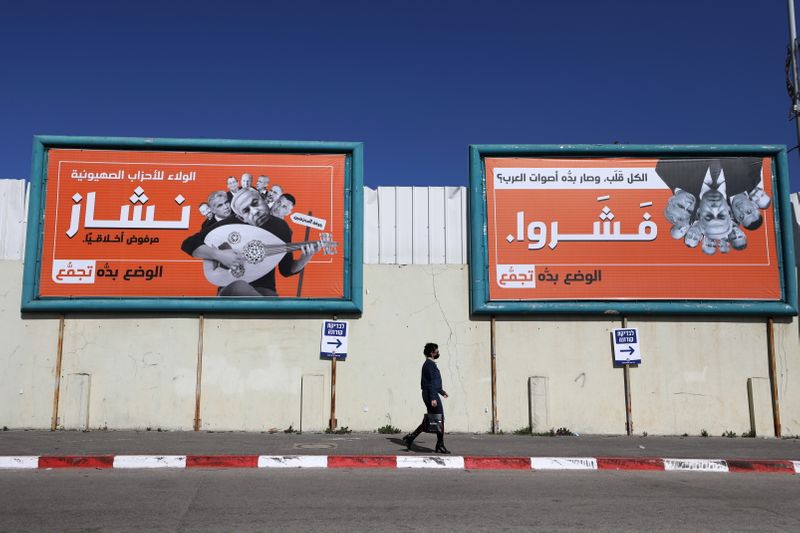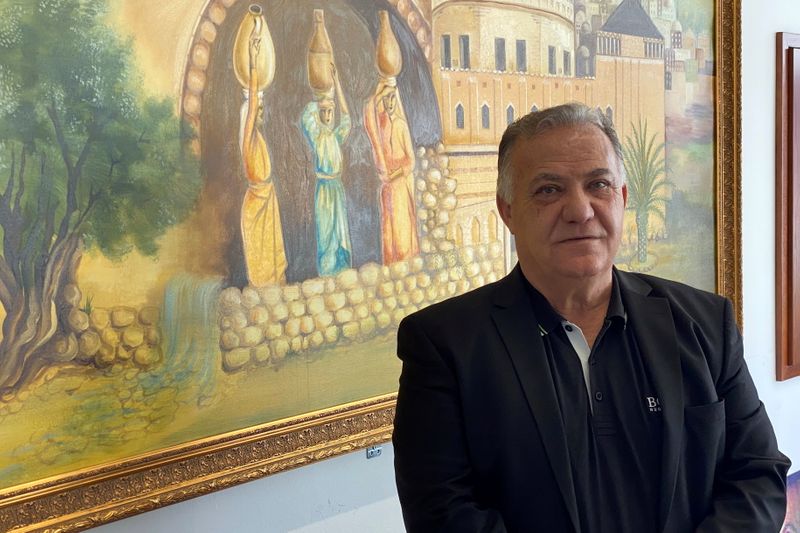By Rami Ayyub
NAZARETH, Israel (Reuters) - Few Arab politicians in Israel's history have openly flirted with the country's right wing, let alone endorsed its main candidate for prime minister.
But Ali Salam, the mayor of Nazareth, says that he sees "no better choice" for Israel's 21% Arab minority than veteran conservative Benjamin 'Bibi' Netanyahu.
In the build-up to a fourth election in two years, Salam has hosted Netanyahu in Israel's largest Arab city, disparaged protests against him and actively cheered a split in Israel's main Arab coalition, the Joint List.
"Bibi, if you ask me, is the best one to continue for another five years," Salam, 69, told Reuters in Nazareth, the city where Jesus grew up, according to Christian tradition.
For Netanyahu, the embrace of Salam and divisions among hitherto united Arab parties might help divide the opposition and nudge Israel's complex coalition arithmetic a fraction in his direction, ahead of a March 23 election that polls indicate will be a tight race.
The mayor's rhetoric contrasts with other Arab leaders, who have long accused Netanyahu of demonising Arabs.
On election day in 2015, Netanyahu urged his voters to turn out, warning that Arabs were flocking to the polls "in droves".
In 2019 his party sent monitors equipped with body cameras to polling stations in Arab towns, prompting allegations of voter intimidation.
And many Arabs were infuriated by a 2018 law that asserted Israel was the historic homeland of the Jewish people "and they have an exclusive right to national self-determination in it."
But as a city leader with no national political ambitions, Salam says his job is to deliver the best for his 110,000 residents.
And he lambasts the Arab political establishment which, he says, has failed to bring government investment to Arab communities.
"Speaking honestly and clearly: Bibi's tenure has brought the strongest improvement of the economic situation in Arab society, ever," Salam said.
Salam said he planned to vote for the United Arab List, an Islamist party that split away from the Joint List last week after its leader also advocated, unsuccessfully, that it work with Netanyahu.
UNPOPULAR VIEW
Israel's Arab minority - Palestinian by heritage, Israeli by citizenship - is mostly descended from the Palestinians who lived under Ottoman and then British colonial rule before staying in Israel after the country's 1948 creation.
Ahmad Tibi, a Joint List lawmaker, said Arab leaders embracing Netanyahu were "a joke".
"Maybe it's Stockholm Syndrome, to have empathy with that person who kidnapped you, or oppressed you," Tibi said. He believes that Netanyanu "will not (get) a lot of votes, even if he is smiling and laughing more."
The debate over whether to work with Netanyahu reflects deep frustration with existing Arab parties, said Asad Ghanem, a professor of political science at Haifa University.
"The fact that the head of the biggest Arab town in Israel supports Netanyahu, without being afraid to say it, reflects an Arab society in political crisis without an agenda to solve its challenges, (principally) crime and violence," Ghanem said.
Netanyahu has also tried to woo Arab voters by pledging 100 million shekels ($30.7 million) to combat violence in Arab towns, and promising to include an Arab minister in his next government.
Only 25% of Arabs believe they should cooperate with Netanyahu, according to one poll. But few see a realistic alternative, according to Arik Rudnitzky, of the Israel Democracy Institute.

"Are you ready to cooperate with any government to achieve your needs, or would you like to wait all your life in the opposition?" Rudnitzky said.
